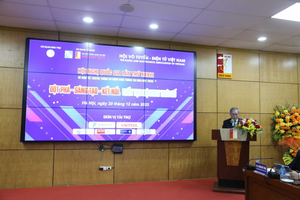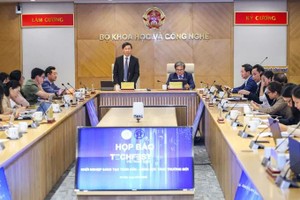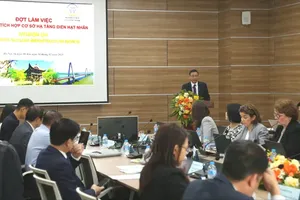
The conference was convened to operationalize policies related to digital economy development and consumer rights protection, as well as to implement the Politburo’s Resolution 57-NQ/TW and other legal instruments concerning digital transformation, agriculture, e-commerce, logistics, and personal data protection.
Speaking at the event, Colonel Pham Minh Tien, Deputy Director of the National Data Center (Department C12 of the Ministry of Public Security), emphasized, “In the context of the digital economy becoming a primary pillar of development, information transparency and the ability to trace the origin of goods have become imperatives. These are not merely state management tools but also prerequisites for building market trust and facilitating international integration.”

Statistics reveal the scale of the problem in Vietnam. In the first five months of 2025 alone, authorities nationwide processed over 40,000 cases involving smuggling, counterfeit goods, and substandard products, with total fines exceeding VND6.5 trillion (approximately US$255 million). The most prominent cases involved food and pharmaceutical products, which pose a direct threat to public health.
“From a data governance perspective, we recognize that deploying modern traceability platforms that apply advanced technologies like blockchain is a critical solution. It will enhance management efficiency, ensure market safety, and bolster transparency across the entire supply chain”, Colonel Pham Minh Tien stressed.
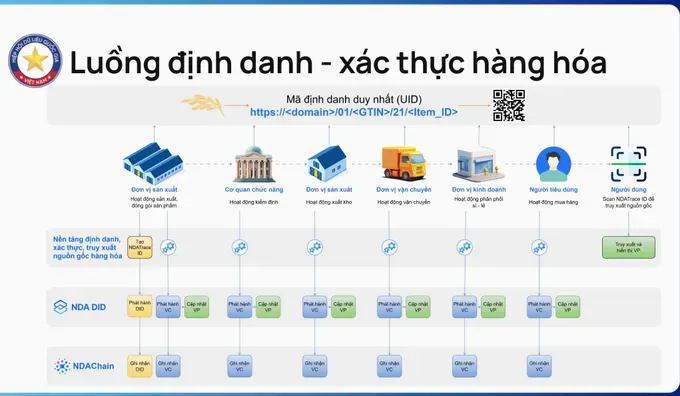
According to experts, origin traceability forms the bedrock of digital administration, digital policy, and the development of an open data ecosystem. It enables the government to formulate more effective policies, empowers businesses to innovate, and strengthens public confidence in domestic products.
Furthermore, robust traceability enhances transparency, track-and-trace capabilities, and digital trust – all essential elements for modern e-commerce, agricultural exports, smart logistics, and supply chain management.
Through a synchronized traceability system, businesses can more effectively control risks, forecast production, manage warehousing, coordinate distribution, and enforce stricter quality control. Consumers, in turn, can quickly and accurately verify a product's entire journey – from raw materials and packaging to distribution and circulation – helping to combat commercial fraud and counterfeit goods.
Notably, the application of made-in-Vietnam technology in this field also plays a role in upholding national data sovereignty by reducing reliance on foreign platforms.

Acting Director Bui Ba Chinh of the National Numbering and Barcode Center remarked that the time for inaction is over; management must be tightened using technology to prevent future risks.
“Resolution 57-NQ/TW”, he noted, “calls for promoting digital consumption and encouraging business investment in digital transformation. This transformation is akin to clothing products in a modern new layer that is better connected and, most importantly, easily verifiable, thereby building consumer trust.”

Echoing this sentiment, Head Nguyen Huy of the Technology Board under the National Data Association (NDA) argued that current traceability efforts are fragmented, lack interoperability, and operate without a unified set of standards authenticated by a state agency with national and international validity.
“The time has come for a comprehensive, mandatory national policy, applied synchronously across all businesses. Only then can we ensure effective identification, authentication, and origin traceability”, Head Nguyen Huy affirmed.
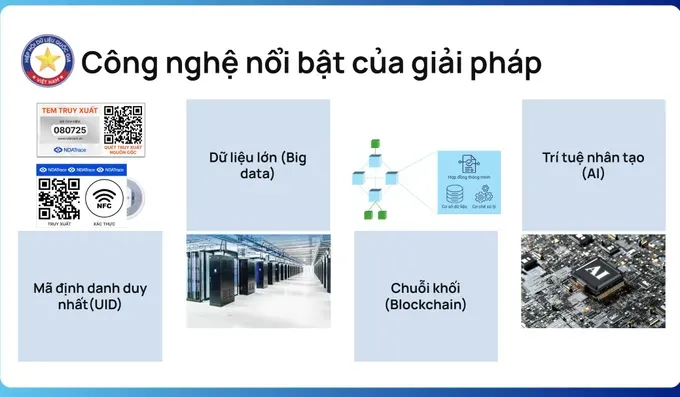
At the workshop, the NDA introduced its NDA Trace platform, a comprehensive, Vietnamese-developed traceability solution. The platform is integrated with national systems and utilizes modern technologies such as a proprietary blockchain (NDA Chain) and decentralized identifiers (NDA DIDs).
NDA Trace enables the unique identification of all organizations, businesses, and products, along with the authentication of product information and supply chain activities. Each product is assigned a unique code, allowing its entire journey to be tracked. Every action within the supply chain is immutably recorded and authenticated, making it impossible to alter or counterfeit and ensuring absolute transparency.

